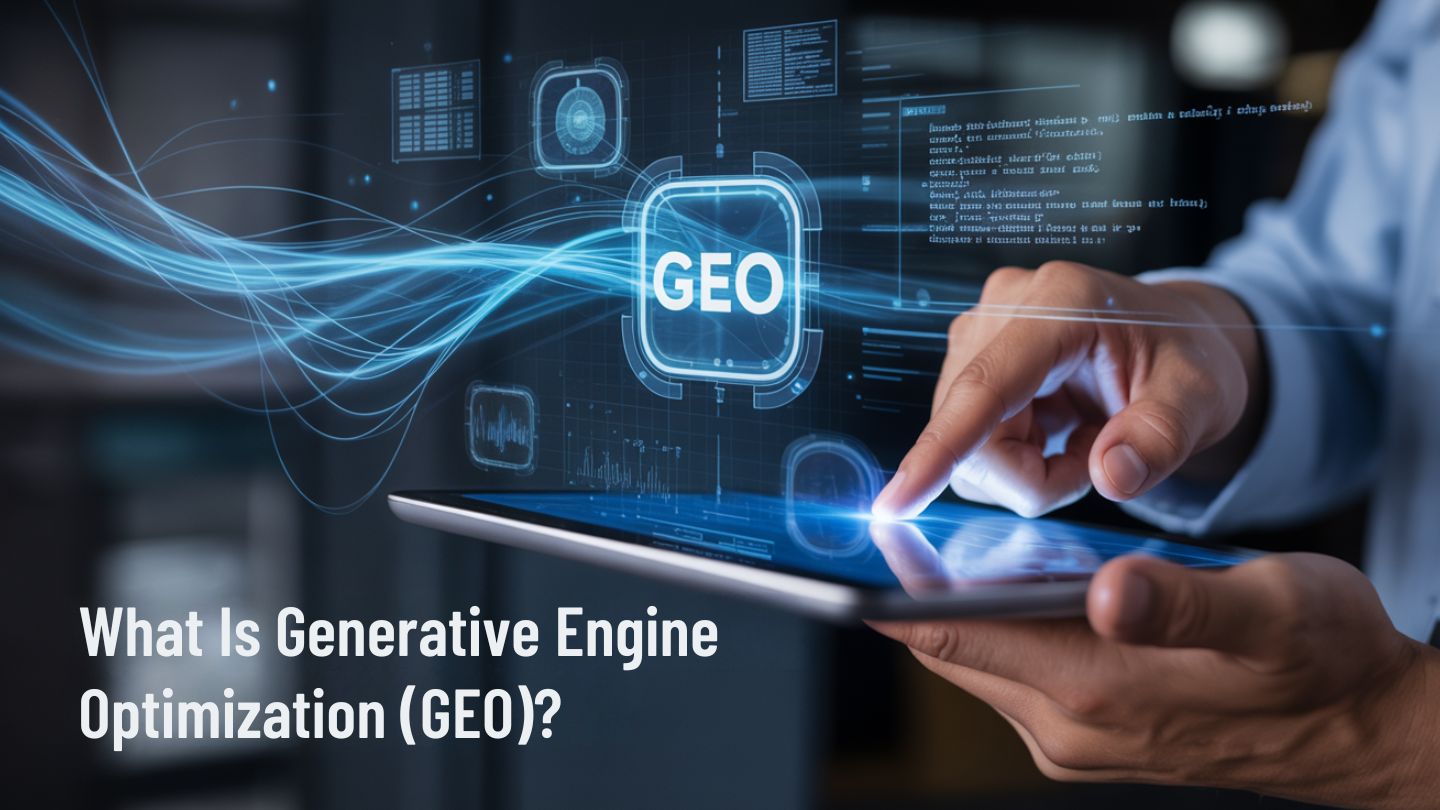
In the ever-evolving world of digital marketing, new trends and technologies are constantly reshaping how businesses approach online visibility and engagement. One such concept gaining significant attention is Generative Engine Optimization (GEO). With the advent of advanced AI tools, like OpenAI’s GPT models, businesses now face a new frontier in search engine optimization (SEO), one that requires a deeper understanding of both AI and traditional SEO principles. In this blog, we will explore what Generative Engine Optimization is, its importance, and how it can enhance your online marketing strategy.
The Rise of AI and Generative Technologies
Generative technologies, like large language models (LLMs), are making waves across industries, transforming everything from content creation to customer service. These AI tools have the ability to generate human-like text, images, and even videos, making them a powerful asset in various fields, including marketing.
Generative Engine Optimization refers to optimizing content and web experiences in such a way that they leverage these AI technologies to enhance search engine visibility and user engagement. The primary goal of GEO is to ensure that your website’s content not only ranks well on search engines but also aligns with the evolving AI-driven algorithms that increasingly influence how content is discovered, consumed, and interacted with online.
How Generative Engine Optimization (GEO) Works?
Traditional SEO focused on optimizing content for search engines like Google by using keywords, backlinks, and on-page elements. However, GEO goes a step further by incorporating generative technologies into the SEO strategy. This could mean utilizing AI tools for content creation, optimizing those pieces of content to interact better with generative AI algorithms, and ensuring that the content provides significant value to the user.
At the heart of GEO is the understanding that generative models—like Google’s RankBrain or OpenAI’s GPT—rely on vast datasets to generate relevant responses to user queries. When you optimize content using GEO, you are essentially making it easier for these AI models to understand, interpret, and rank your content more effectively. This optimization might involve several aspects, such as:
- AI-Optimized Content Creation: Tools like ChatGPT can assist in crafting high-quality, informative, and relevant content that resonates with users and aligns with AI’s preferences for comprehensiveness and engagement.
- Enhanced User Experience: Beyond just ranking factors, GEO focuses on enhancing the overall user experience by making sure that the content is useful, engaging, and personalized. This includes dynamic content features, interactive elements, and personalization based on user intent.
- Search Engine Algorithm Compatibility: As search engines increasingly use AI-driven systems to rank content, optimizing your site’s architecture and content to be more compatible with these algorithms can lead to higher rankings and visibility.
The Role of Generative AI in SEO

AI models have become integral to search engines, driving algorithms that rank websites based on a combination of factors, including relevance, engagement, and usability. These AI models are capable of understanding complex search queries and generating the most relevant results. Generative Engine Optimization helps ensure that your content is primed for this type of intelligent processing.
Here are some of the ways GEO intersects with SEO in the context of generative AI:
- Content Creation and Enhancement: Using AI tools to generate content that matches user queries in a more conversational or contextually relevant manner. This is an advanced form of keyword optimization where content is not just keyword-stuffed but contextually rich and user-friendly.
- Semantic Search: Search engines are increasingly moving beyond simple keyword matching. With the power of natural language processing (NLP), they can understand the meaning behind search queries. GEO ensures that your content is optimized for this shift, using techniques like LSI (Latent Semantic Indexing) keywords and related terms to boost relevancy.
- Personalization and Targeting: AI can personalize content delivery based on user preferences, behavior, and past interactions. GEO ensures that your content is flexible enough to adapt to these personalized recommendations, driving better user experiences and higher conversion rates.
The Importance of GEO in Today’s SEO Landscape
As search engines become more sophisticated, traditional SEO strategies alone may not be enough to stay ahead of the competition. Generative Engine Optimization is critical for businesses aiming to not only rank higher in search engine results pages (SERPs) but also provide exceptional, AI-friendly content that resonates with modern users.
Moreover, GEO ensures that your content is future-proof, as it adapts to the evolving nature of search engines. With generative technologies becoming more entrenched in the ranking algorithms, GEO offers a competitive edge by helping businesses stay in sync with these advancements.
Additionally, focusing on improving user engagement with AI-generated content can boost metrics such as bounce rate, session time, and conversion rates—key indicators that search engines use to determine a website’s value and relevance. Enhancing the online experience and improving user interaction with content are essential factors in increasing site performance. improving user interaction with content is an essential factor in increasing site performance.
GEO and its Connection to Other Marketing Strategies

Generative Engine Optimization works seamlessly with other elements of digital marketing. For example, by integrating AI-driven content creation with data analytics and conversion optimization techniques, businesses can craft marketing campaigns that drive both search engine traffic and high-quality user engagement.
Moreover, GEO is closely linked to improving the technical SEO aspects of your website. Just as optimizing user-generated SEO value is crucial for building a strong SEO foundation, GEO further enhances this by ensuring that AI-generated content is not only crawlable but also aligns with evolving search engine algorithms.
The Future of SEO with GEO
The integration of generative AI into SEO practices is still in its early stages, but the potential for growth is significant. As AI continues to advance, the role of GEO will likely become more central in the development of SEO strategies. Businesses that leverage these technologies early will be well-positioned to maintain a competitive edge in search rankings and user engagement.
To stay ahead of the curve, it’s crucial to continually monitor the developments in both AI and search engine algorithms. By understanding how generative AI interacts with search engines and how you can optimize content to align with these systems, you ensure that your marketing strategy is both forward-thinking and effective.
Conclusion
Generative Engine Optimization (GEO) is revolutionizing the way businesses approach SEO in the age of AI. As generative AI technologies continue to shape the future of search engines, optimizing content for these systems is no longer optional—it’s essential. By focusing on AI-optimized content creation, enhancing user experience, and aligning with advanced search engine algorithms, businesses can improve their online visibility, engagement, and conversion rates.
The future of SEO is undoubtedly intertwined with the advancements in generative AI, and GEO provides a pathway to stay ahead of the curve. As these technologies evolve, early adoption of GEO strategies will give your business a competitive edge in both rankings and user satisfaction.
At The Ocean Marketing, we understand the importance of staying up-to-date with the latest digital marketing trends and technologies. If you’re looking to implement Generative Engine Optimization into your SEO strategy or need expert guidance on improving your online presence, contact us today to learn how we can help you succeed in this new era of SEO.

Marcus D began his digital marketing career in 2009, specializing in SEO and online visibility. He has helped over 3,000 websites boost traffic and rankings through SEO, web design, content, and PPC strategies. At The Ocean Marketing, he continues to use his expertise to drive measurable growth for businesses.

